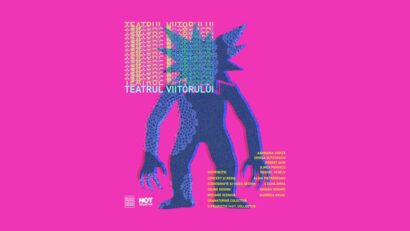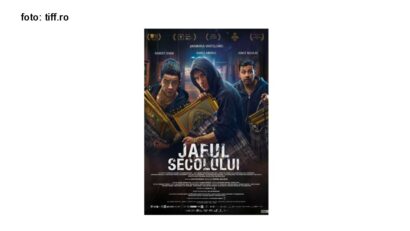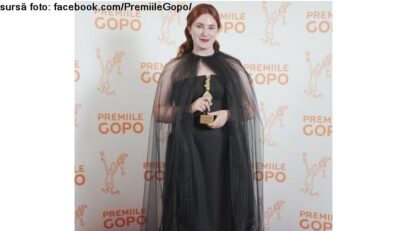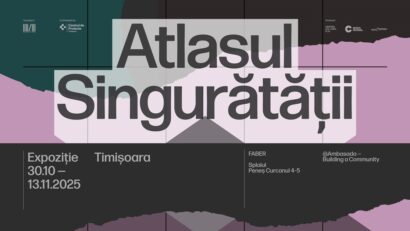BIEFF: The Bucharest International Experimental Film Festival
The 10th edition of the BIEFF, The Bucharest International Experimental Film Festival, the first to be held in a hybrid fashion, online and offline, concluded on Sunday, November 29th

Corina Sabău, 12.12.2020, 13:24
The 10th edition of the BIEFF, The Bucharest International Experimental Film Festival, the first to be held in a hybrid fashion, online and offline, concluded on Sunday, November 29th. Through the BIEFF streaming platform, viewers around the country could follow the 6 days of the festival with the most audacious film experiments of the year, while movie lovers in Bucharest had the opportunity to explore a wide selection of short film in partner art galleries.
We talked to Oana Ghera, the new artistic director of the festival, about how this event could be held at the height of the pandemic:
“This is a special year, and we worked a lot on the selection in the middle of the lockdown, and we discovered there a plethora of topics that seemed to concern both us, the curators, and the directors of the movies. We realized that this idea of utopia, or dystopia, of a brave new world that we found during isolation, was anticipated by the directors. We are talking about a search for alternative futures, new ways to imagine society, starting from the problems we currently face. We do curator work, we have no influence on who signs up for the festival, we search far and wide for the movies we show at the festival. We usually choose movies from distribution catalogs, that are path breakers in terms of experimental films. In this way, we bring in the most interesting productions to the Romanian audience. We dont start off from set criteria, with a set topic, we try to sound the current topics, the most interesting, that tie together as many directors as we can.”
Oana Ghera, the new artistic director of the festival, told us about the themes of the movies in the festival:
“This year we had seven curatorial themes, seven programs that made up the international competition with 39 titles. The broad umbrella was A Brave New World, which included two programs, utopia and dystopia. They are called Embracing Utopia and The Spectre of Dystopia. We proposed themes that we believe are very important for the present moment. One of these themes is women and their roles in a series of 6 short films directed by women. The Map Is Not a Territory is a program that discusses migration in the contemporary world, a topic that keeps being on the BIEFF agenda over the last few years, because directors take a real interest in this topic that has been central to this decade. An Act of Violence is another major theme at the festival this year. It treats depictions of violence, from war to terror attacks to the small acts of violence that occur more and more around us. In this edition we included Sublime Bodies, which talks about the representation and politics of bodies, about the place bodies have in the public space. We also have A State of Grace, which, just like the Embrace Your Utopia section, looks at the way in which we can seek refuge in a troubled world, like the one we live in. We like to say that BIEFF is a space for the reflection and debate, not just a space to watch new movie productions. This year we hope, more than ever, that the movies that we chose will invite people to reflect on our times, and maybe in this way, starting from new ways of seeing the future and new ways of discussing what is happening to us, we may find a way to slowly re-invent ourselves as a society. This is the reason for which we have paired the short films with an equal number of debates, in which we discuss with the directors of these movies, as well as special guests, talking about the topics tackled by these competition themes.”
They parlaient idéale, a film about dreaming of alternative ways of existence, won the Grand Prize of the BIEFF 2020. It was directed by Laure Prouvost, and prevailed among the 39 short films in the international competition, with its audaciousness, political sensitivity, and joy in these dark times. It was a joint French-Belgian-Italian production, skipping formal and iconographic borders, beyond the limitations of age, nation, race, or species. The film is inspired by surrealism, street magic, eccentric fantasy, and more. This was the appreciation of the jury, this time made up of Charlotte Serrand, artistic consultant for the Cannes film festival, Irina Trocan, a lecturer with the film school in Bucharest, and Maha Maamoon, a member of the Forum Expanded team of the Berlinale.






























